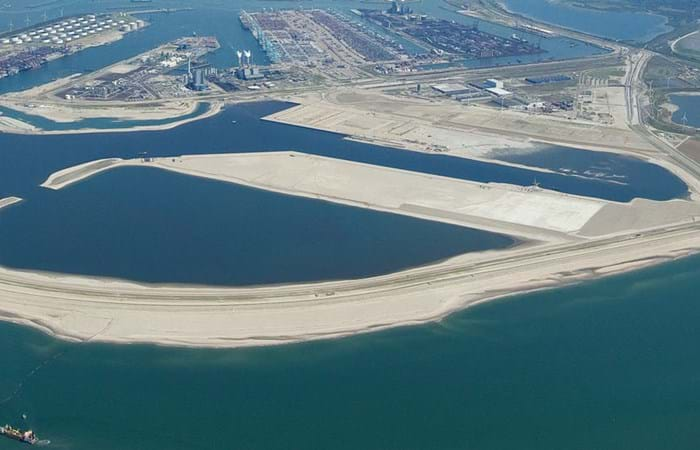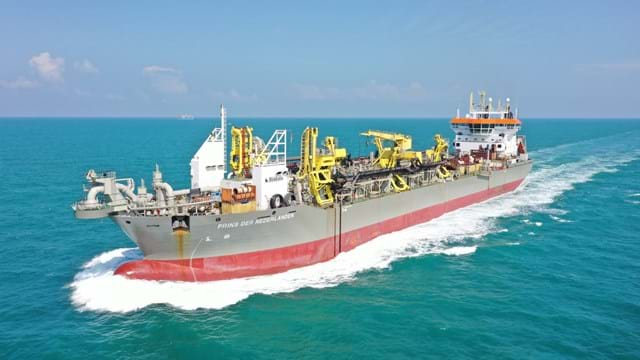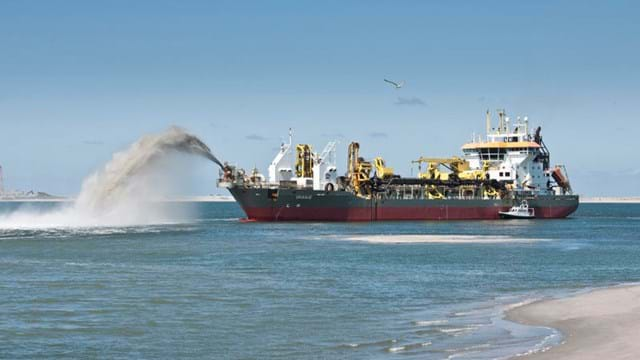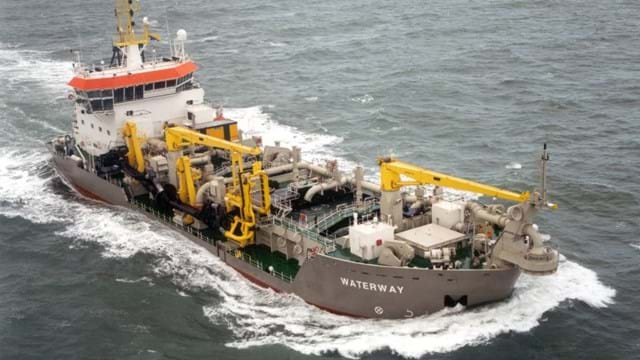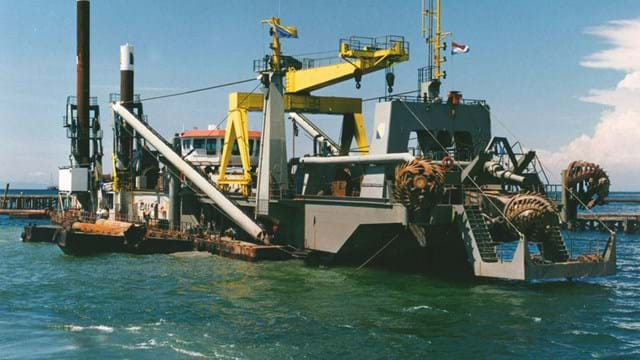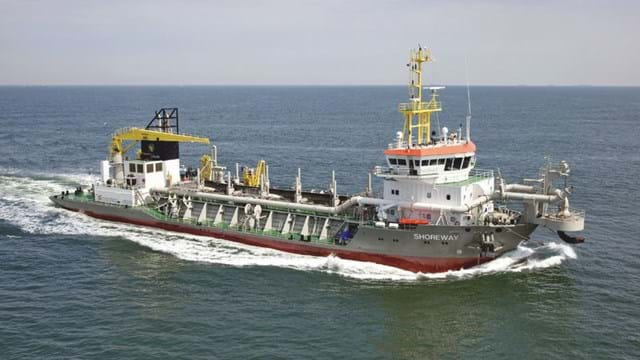PUMA, the Project Organization for the Extension of the Maasvlakte, is a 50/50 joint venture between dredging and marine contractors Boskalis and Van Oord. The consortium has been contracted by the Rotterdam Port Authority to construct the first phase of the Maasvlakte 2 Project – the extension of the Port of Rotterdam – between 2008 and 2013. The new zone will encompass 2,000 hectares of new land, roughly the same size as the total surface area of Schiphol airport. Half of the area will become land for a future business park.
The first phase of Maasvlakte 2 comprises an industrial site area measuring 700 hectares. The port basins are dredged to –20 m NAP (Normal Amsterdam Water Level), so that even the largest (next generation) container vessels can dock. An important component of the project is the construction of the overall sea defenses. The outer contour bordering the sea is about 11 kilometers long, and includes a hard (rocks) and a soft (dunes) section. The 3.5 km hard section requires 20,000 concrete blocks, each weighing approximately 40,000 kg and 7 million tons of broken rock, of which 1.5 million tons is recycled from the existing sea defenses, from Maasvlakte 1, and 5.5 million tons is imported from quarries in North-West Europe (mainly from Norway). PUMA is also managing the construction of the quaywalls, railways and roads for the Maasvlakte 2 project. About 140,000 tons of asphalt, 110.000 tons of mixed aggregate and 112,000 m2 of sandcement stabilisation will be used for the construction of the roads.
'We are pleased and proud as a Dutch company to be involved in this major project in our own country. The Second Maasvlakte confirms the position of the Netherlands as a leading nation in maritime construction.' Peter Berdowski
Boskalis CEO
Conclusion
The construction of Maasvlakte 2 is one of the most high-profile projects in the history of hydraulic engineering. The complexity and the enormous dimensions of the project are unrivalled. The project is carried out according to the highest quality and safety standards, resulting in the lowest Lost Time Injury Frequency (LTIF) figures ever achieved in The Netherlands. PUMA will remain responsible for the maintenance of the sea defense for another five years after the project completion in 2013. The Maasvlakte 2 area will ultimately encompass a total of 1,000 ha (nett) of industrial complex located directly on deep and navigable water.
